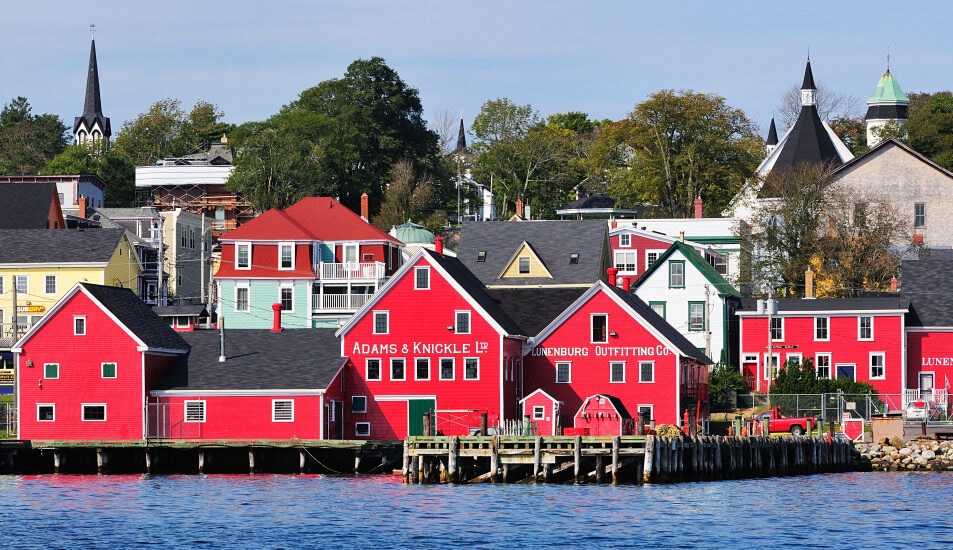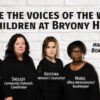
Last July, a friend of mine and her two young daughters set off from Halifax to visit me in my hometown of Lunenburg. As it was their first time visiting, they decided to stroll about the historic streets. They first stopped at a lovely local café with a little garden for a bite to eat. Next, they meandered down Montague Street, and stopped and browsed around a couple of shops. Then, they made their way to Lunenburg’s iconic, scenic waterfront.
Later in the day, when my friend and her daughters arrived at my place, she cut short our usual casual greetings and chit chat – she had something she wanted to get off her chest – something unexpected had happened on the waterfront and she needed to debrief.
She recalled how her girls were excited to watch all the hustle and bustle happening in the front harbour. They were instantly drawn to the waterfront activity: a boat leaving the dock, vessels anchored at their moorings and sailing crafts going in and out of the harbour. My friend thought of her husband and two-year-old son, and how they were missing out on this wonderful family experience. With Lunenburg’s picturesque harbour as a backdrop, and like so many other visitors that frequent the town, my friend reached for her phone and asked her daughters to look at her so she could capture the moment.
While trying to take a photo, the older daughter was cooperating but the younger one was making silly faces, so my friend urged her to smile. A friendly older man approached them from behind and began teasing the younger daughter, telling her to put her tongue back in her mouth. Joking and gesturing with a stick in his hand, he warned that she should listen, otherwise he would poke her with the stick. The exchange from the gentleman encouraged the younger child to change her facial expression, smiling for the photo.
My friend explained that she didn’t remember the exact details of the conversation up to this point, although she did recall the man commenting “I look like a Yankee, but I am not,” as she noticed his shades decorated with stars and stripes.
The gentleman then asked her, “From Halifax, hey?” She didn’t answer this all too familiar question. After a pause, he said as clear as day, “So, the father must be a darkie, hey?”
Half stunned, my friend said nothing. While laughing, he pressed further: “Or, you, you’re just the babysitter?” Still stunned, my friend did not reply, though she began preparing to guide the girls back to the car. Finally, the man urged, “Well, are you the mother?” My friend hesitated for what she said felt like a long time before replying “Yes.” She said nothing more. As she coaxed the girls to leave waterfront, she heard his last remark, “Yup, they sure are cute …”
Stupefied by this unexpected encounter, my friend tried to collect her thoughts as they made their way to my place. She tried to think of what she should have said or done differently. This was a “teachable moment” she thought, bothered that she didn’t know what to make of it.
Needless to say, I was extremely bothered by my friend’s story and the course of events that changed her family’s south shore summer outing into a racist experience. As we discussed what had happened, she commented that she did not think the man intended what he said to be offensive. She felt he was determined to figure out the racial makeup and origin of her daughters.
My friend and her daughters experienced what is described as a microaggression. In their case, it was a brief daily biased and prejudiced verbal encounter with a white male in the town of Lunenburg. During the conversation that he dominated he made insensitive, prejudicial slights towards them which my friend believes were done in an unintentional, yet still racist manner.
During the rest of our day together, we unloaded our thoughts and feelings about this confrontation. We realized there was much unpacking to do to get a better grasp of how it came to occur and what we might learn from it. We both felt that the questioning man’s response to a white mother and her mixed-race children was inseparable from the history of slavery and colonialism.
My friend brought up a recent article by Charmaine A. Nelson, Our Unspoken Discomfort with Interracial Relationships, which discusses how Canada’s history of slavery continues to impact how we view cross-racial couples today. The presence of mixed-race children in this moment on the waterfront seemed to have a triggered some kind of need to know if, or how, the white mother’s race was contaminated by an invisible “darkie” and how exactly these “cute” children came to be. While my white friend’s Black husband wasn’t physically present, the idea of him preoccupied the white man with questions he seemed to feel entitled to have answered. In this moment on the waterfront, the presence of mixed-race children brought out a deep-seated attitude of racial superiority.
We both remarked on the importance of reflecting on this kind of teachable moment to become more aware of racial injustice—in both the past and present—so that we can collectively work toward acting in anti-racist ways.
Check out our new community calendar!
With a special thanks to our generous donors who make publication of the Nova Scotia Advocate possible.
Subscribe to the Nova Scotia Advocate weekly digest and never miss an article again. It’s free!




Unhappily, this does not surprise me at all. When my mixed-race granddaughter was a baby / toddler in HRM, strangers and others on the street and in the shops frequently felt they were entitled to ask my white (single mother) daughter all sorts of ignorant questions. As well, some acquaintances / colleagues who were Black, thought they had a right to know all the details of how my granddaughter came to be.
Having raised an African canadian child in lunenburg county, I can tell you of many times I had to stand up for my child. Racism has been and is still rampant here. I have and still do give talks on it. I find it so hard when the need to constantly repeat myself to the same groups of people. Lunenburg county is full of people who will say one thing to your face and another behind your back. Lunenburg county cheated me out of being able to watch my grandchildren grow up because my daughter in order to save her spirit and have a normal life had to leave nova scotia. Any person of mixed race especially if you are of color will be treated with differently here in lunenburg county.